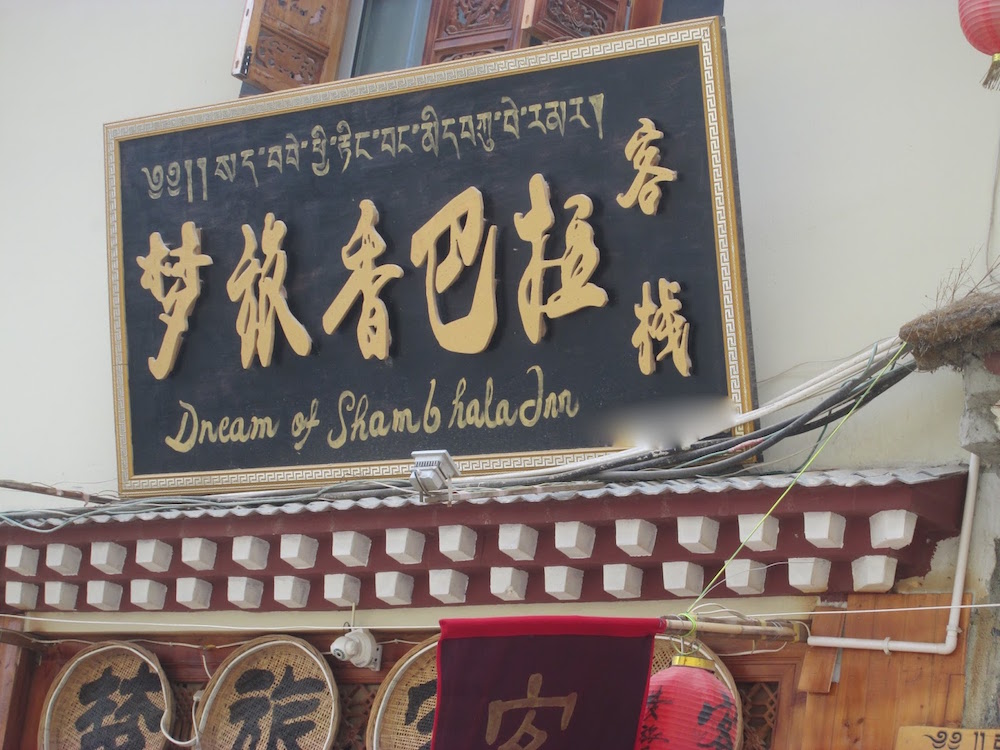Archive for Lost in translation
February 19, 2017 @ 6:09 am· Filed by Mark Liberman under Lost in translation
This is a guest post by Reza Mirsajadi, who previously published a version on Facebook.
For much of my adult life, whenever I have had to defend the Iranian people to conservatives, they have fought back with the "Death to America" argument. This more or less amounts to "They [Iranians] want to kill us, they said so!" I am so fed up with these misconceptions, and the news media and translators need to take responsibility for their part in it.
As someone who does a lot of translating, I understand that there is an ethical component to the craft. People rely on your work to understand the Other. For this reason, cultural context is absolutely imperative. The "Death to ___" chant commonly heard in Iranian political protests for well over sixty years, is a mistranslation. Yes, the Farsi word "marg" can translate to "death," but "marg bar ___" translates to "Down with ___", as you can see in the lead photo for the Guardian article "Iranians turn out in force for rallies after call for Trump response", 2/10/2017:

Read the rest of this entry »
Permalink
February 9, 2017 @ 4:43 pm· Filed by Geoffrey K. Pullum under Language and computers, Lost in translation, Nerdview
Steve Politzer-Ahles was trying to change his password on the Hong Kong Polytechnic University system, and found himself confronted with this warning:
You may not use the following attribute values for your password:
puAccNetID
puStaffNo
puUserGivenName
puUserSurname
Attribute values? This is classic nerdview.
Read the rest of this entry »
Permalink
February 9, 2017 @ 1:20 pm· Filed by Victor Mair under Lost in translation
Photograph of a sign taken by Boris Kootzenko on a recent trip to China:

Read the rest of this entry »
Permalink
January 27, 2017 @ 7:34 am· Filed by Geoffrey K. Pullum under Language and the media, Logic, Lost in translation, Metaphors, Numbers, Semantics, Silliness, The language of science
I commented back in 2008 on the ridiculous vagueness of some of the brief weather forecast summaries on BBC radio ("pretty miserable by and large," and so on). I do sometimes miss the calm, scientific character of American weather forecasts, with their precise temperature range predictions and exact precipitation probabilities. In recent days, on BBC Radio 4's morning news magazine program, I have heard an official meteorologist guy from the weather center saying not just vague things like "a weather front trying to get in from the north Atlantic," or "heading for something a little bit warmer as we move toward the weekend," but (more than once) a total baffler: "The temperature is going to be struggling." What the hell is that about?
Read the rest of this entry »
Permalink
January 17, 2017 @ 11:18 pm· Filed by Victor Mair under Found in translation, Lost in translation, Names
Thorin Engeseth noticed that, at the end of the Taiwanese video game "Detention", there are some interesting adopted Western names among the people involved in the game's creation — especially Coffee, Finger, and Smiler:

Read the rest of this entry »
Permalink
December 20, 2016 @ 4:59 pm· Filed by Geoffrey K. Pullum under Dialects, Gift ideas, Grammar, Humor, Intelligibility, Language and advertising, Language and business, Lost in translation, Orthography, Punctuation, Quizzes, Signs, Silliness, Translatese, Translation, WTF
A neighbor of mine, a respectable woman retired from medical practice, set a number of friends of hers a one-question quiz this week. The puzzle was to identify an item she recently purchased, based solely on what was stated on the tag attached to it. The tag said this (I reproduce it carefully, preserving the strange punctuation, line breaks, capitalization, and grammar, but replacing two searchable proper nouns by xxxxxxxx because they might provide clues):
ABOUT xxxxxxxx
He comfortable
He elastic
He quickly dry
He let you unfettered experience and indulgence. Please! Hurry up
No matter where you are. No matter what you do.
Let xxxxxxxx Change your life,
Become your friends, Partner,
Part of life
Read the rest of this entry »
Permalink
December 17, 2016 @ 2:50 am· Filed by Victor Mair under Found in translation, Lost in translation
Huawei Technologies is a Chinese multinational networking and telecommunications equipment and services company. Mark Metcalf sent in this photograph of a scene at their corporate headquarters in Shenzhen:

Read the rest of this entry »
Permalink
December 4, 2016 @ 4:51 pm· Filed by Geoffrey K. Pullum under Language and the media, Lost in translation
Sometimes the obeisance to style guides by newspaper editors and journalists looks not so much craven as robotic. The Telegraph provides an example. Like many newspapers, it has a policy of reporting distances in kilometers but appending parenthesized equivalents in miles (it's a conservative newspaper, and is not going to push its mileage-oriented readers toward metric units any time soon). Often that's useful: when it reports that The behemoth Airbus A380 … is capable of carrying 544 passengers up to 15,200km (8,200 miles), the parenthetical suffix serves to assist metrically challenged Americans and older Brits in forming an idea of what 15,200 of those little bitty European kilometer things might amount to. (At least, it would have done if it were correct, but as Bruce Lin has pointed out to me, it's wildly wrong: 15,200 km = 15200/8 * 5 = 9,500 mi. They're off by 1,300 miles. They must have meant nautical miles: 15,200 km = 8207.34 NM. That could be a life-threatening error for a jetliner running low on fuel. But never mind; who's counting.) Sometimes, though, doing such conversions is rather less useful.
Read the rest of this entry »
Permalink
November 15, 2016 @ 3:04 pm· Filed by Victor Mair under Language and advertising, Language and food, Lost in translation
Advertisement for a beverage that is available in Japanese convenience stores:

Read the rest of this entry »
Permalink
October 14, 2016 @ 8:20 pm· Filed by Victor Mair under Language and psychology, Lost in translation
Posted on imgur:
View post on imgur.com
Read the rest of this entry »
Permalink
October 6, 2016 @ 2:59 pm· Filed by Victor Mair under Language and tourism, Lost in translation, Signs
Sign on an inn in Shangri-La, Yunnan, China:

Read the rest of this entry »
Permalink
September 6, 2016 @ 1:06 pm· Filed by Ben Zimmer under Language and politics, Lost in translation, Swear words, Taboo vocabulary
A diplomatic rift between the United States and the Philippines was precipitated by comments that Philippine President Rodrigo Duterte made about President Obama at a Sept. 5 news conference.
Duterte's offensive comment was made in Tagalog (though most of his news conference was in English). In English-language press accounts, the Tagalog phrase putang ina has been translated as "son of a whore" or "son of a bitch." (NPR was less forthcoming today, variously referring to it as "an obscenity about Obama's mother" or "son of a fill-in-the-blank.") So what did Duterte really mean by putang ina? Chris Sundita, who has helped us with Tagalog translational issues in the past, comes to the rescue.
Read the rest of this entry »
Permalink
August 15, 2016 @ 12:25 am· Filed by Victor Mair under Language and sports, Lost in translation, Slogans
Jason Cox sent in the following very brief video from the USA-China basketball game at the Rio Olympics, showing a man holding a sign that says "Go USA".
Read the rest of this entry »
Permalink





